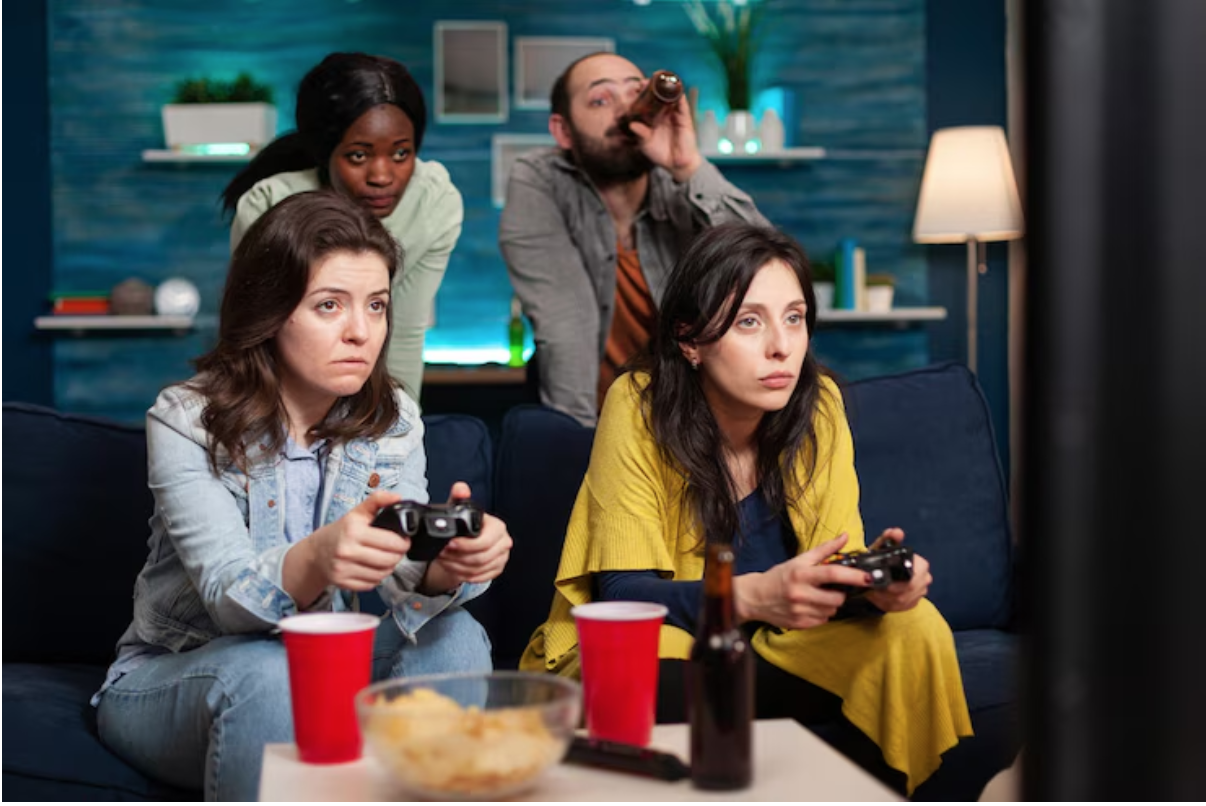Can Video Games Help with Real World Problems?

Common perception holds that video games are an avenue for entertainment, colorful expeditions into fantasy. Along with the evolution of the gaming industry, a very important question was born: Can games be used as a medium to solve real-world problems? Unexpectedly, the answer is a growing and big YES.
From education to mental health and environmental awareness to disaster response, video games are being used as tools to try and address pressing challenges of the world.
Video Games Help with Real World Problems
1. Promoting Education and Learning
Educational video games have provided a fresh perspective on how students interact with complex subjects. Platforms like Minecraft: Education Edition permit students to learn math, science, history, and even coding in interactive and highly hands-on ways.
These experiences make learning fun and immersive so that students will retain information better and understand it more deeply.
2. Helping in Mental Health and Emotional Wellness
This is one of the most pressing real-world concerns at present, and video games are being viewed as a cure. Celeste is a game that talks about feeling sad or worried, and helps players deal with it in their own way. Animal Crossing is a calm game that helps people feel relaxed and happy.
Platforms like tiranga login also help people feel better by using fun and interactive games that support mental and emotional health in a calm, relaxing, and enjoyable way.
3. Awareness of Global Issues
The games are also becoming potent platforms that raise awareness about social, political, and environmental issues. Sea Hero Quest was built in association with neuroscientists to collect data on dementia. Millions played the game for research data.
That Dragon, Cancer, on the other hand, conveys the heart-wrenching tales of a child with a terminal illness to foster empathy and awareness for pediatric cancer. Beyond mere amusement, these games incite thought and bring critical real-life issues up for discussion.
4. Training for Real-World Careers
Surprisingly, many video games now train professionals. Flight simulators aid pilots, tactical games assist police and military, and VR tools help surgeons improve precision. Additionally, some games help solve real-life problems, bridging the gap between virtual practice and real-world applications in innovative ways.
The training allows practice of risks, reduces costs, and enhances the effects on real life.
5. Disaster Response and Urban Planning
Games like SimCity and other planning games help city designers and builders try out ideas for cities. They can test how roads, buildings, and services work during problems like floods, fires, or earthquakes. This helps them plan better and be more ready for real disasters in the future.
Final Thoughts
People often think video games are just for fun, but they can actually help solve real-world problems. Games are now being used in areas like learning, health, science, and city planning. They are becoming useful tools that help us face modern challenges in new and creative ways, making complex issues easier to understand and more engaging to explore.
